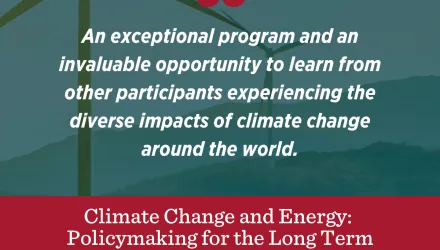In the past two decades, the mounting risks posed by climate change have motivated businesses, cities, states, national governments, and the international community to pledge to take action to reduce their greenhouse gas emissions. Given the scale of the problem, the breadth of action must be effective and must set the foundation for increasing mitigation efforts over time. Thus, delivering on these pledges will require effective policies to drive the deployment of low-carbon technologies today and technological innovation in the future to ramp ambition up on par with the risks of climate change.
Climate change is a problem no country can solve by itself. Since the mid-1990s, the United States has advocated for developed and developing countries to work together in combating climate change and, with the United States' leadership, the 2015 Paris Agreement delivered unprecedented commitments by virtually every country on the planet to reduce their greenhouse gas emissions. Now, the election of Donald J. Trump, an avowed global warming skeptic, has thrown America's commitment to global leadership in doubt. If the United States quits the fight against climate change, this risks unraveling the global coalition and could result in other countries following suit. This would be a tragic mistake with incalculable consequences for the entire planet. Moreover, some nations may retaliate against the United States by imposing tariffs on American-manufactured goods based on the greenhouse gas emissions associated with their production.
Download the entire paper here: http://www.progressivepolicy.org/publications/long-term-carbon-policy-great-swap/
Aldy, Joseph. “Long-term Carbon Policy: The Great Swap.” Progressive Policy Institute, November 2016





